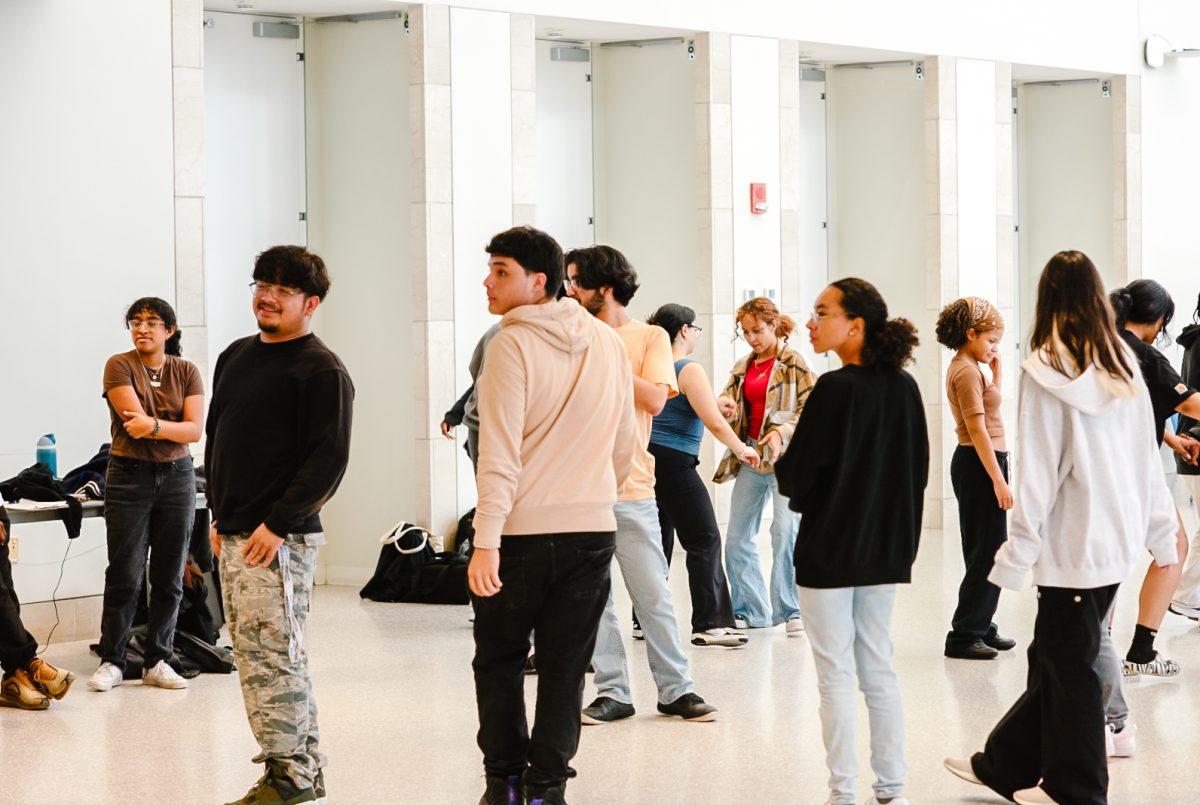This year, Hispanic Heritage Month runs from Sunday, Sept. 15 through Tuesday, Oct. 15. As I’ve seen advertisements showcasing different types of representation, highlighting Latines from various walks of life, I’ve begun asking myself a complex question: “What does being Latina mean to me?”
I sat for a bit, thinking about how broad of a question this is. While trying to think of an answer, I found one by beginning to look around at all the things that made me into the person I am.
These include memories of my immigrant mother making cultural food that she was proud of. Watching both her and my grandmother clean houses to make some money, like the Hispanic maids many of us see in movies. The jokes being told over the dinner table in Spanish that don’t quite translate the same in English but are funny all the same.
All of these, and so many more, were what made up my experience growing up as a Latina. Watching generations of strong Latina women in my family showed me that I could achieve anything I wanted with hard work and determination.
I’ve seen my family overcome all types of barriers, from learning a new language to searching out economic opportunities. I’ve seen them face adversity many times and always find ways to overcome it. To me, being Latina is resilience.
But as I said earlier, there are so many different types of Latines, each having their own experiences and upbringings. This led me to wonder how other Latines felt about the same question I was working to unpack.
Out of curiosity, I decided to ask someone else for their perspective. Hispanic Heritage Month is a time to connect with our culture, and I was curious to hear how other Latine students interpret its importance.
I was able to ask this question to my classmate, Anais. After I did, she paused in order to reflect and repeated the question to herself a few times.
Then she went on to say, “Well, being a Latina to me means finding a happy middle ground between your roots and who you want to be. I don’t necessarily want to be a stay-at-home mom or commit to the gender norms that we’ve been raised to believe and follow. So, yeah. For me, it’s trying to find a balance between respecting old cultural traditions while also being able to make new traditions that work better for me.”
This concept of traditional values and staying true to your roots is something I believe is cemented into every culture, and is especially understood by first-generation children being raised here in the United States, such as Anais and me. Her view of being Latina is a harmony between past and future — showing a passion for remembering where she came from, while heading to where she’s going.
Hispanic Heritage Month is about honoring where you’ve come from and appreciating the sacrifices and battles of those who came before you. However, this goal of honoring where you came from while also being able to critically analyze what doesn’t work for you is a hard process.
It can feel like you’re challenging your own lineage, but many Latines feel that sometimes, it’s necessary to realize that what works for someone else doesn’t have to work for you.
Anais and I were able to connect more after I asked her this original question, discussing the similarities of being the eldest daughter in our Latine households, and the expectations that come from that. This conversation truly highlighted why heritage months like this matter.
There is something fulfilling in finding out that someone understands you in a deeper way than some others might. This world can be isolating, and as a minority, it can be even harder to find people who really get you.
When you’re in college and looking for careers, this isolation can feel even more prominent. And there’s a documented reason for these common emotions.
As we take part in this college experience, it’s important to see just how big a deal it is for us to be here. According to a 2021 NBC News article, by the year 2019, Latines only made up 16% of the college population. Not only that, but once we do graduate, we are often one of the most underrepresented groups in the workforce. In 2024, AP News stated that the U.S. Bureau of Labor Statistics discovered that Latines make up only 7% of system managers in technology jobs, and 21% in healthcare.
Navigating the world can be hard while being Latine, especially when you feel like you’re going at it alone. This is why it is especially important to seek out and maintain community. It’s easier to raise other people up when they understand your battles.
This human journey is all about navigating the world in a way that best makes sense to us. No Latine is the same, and that applies for every single person on this planet. We are all uniquely different, meaning that Hispanic Heritage itself will look different for many people.
However, it’s essential to remember that we are often more similar than we are different. It’s especially powerful when being in this community can be such an intricate part of our identities.
So, with all of this, I hope my fellow Latines enjoy Hispanic Heritage Month and feel a heightened sense of unity over the next few weeks. I look forward to seeing all we can accomplish!



